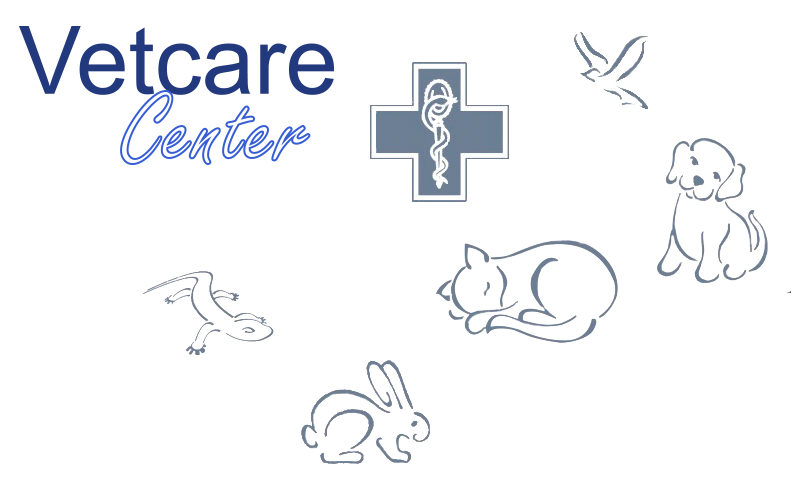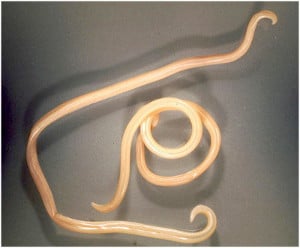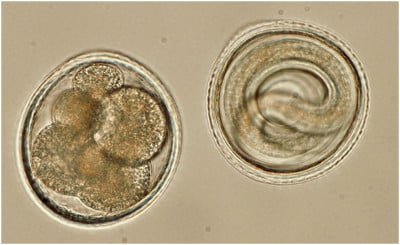
Ascarids of dogs and cats
What are dog and cat roundworms?
Adult ascarids as seen in the droppings or vomit of puppies and kittens. © Alan R. Walker, Creative Commons
Modes of contamination
- By the oral route (e.g. ingestion of food contaminated by eggs)
- During gestation (contamination of puppies in the womb)
- During lactation (ascarid larvae can be found in the milk of mothers and contaminate their offspring).
Limit the contamination of the environment
- Pick up the poop
- Do not allow your pets access to the vegetable garden, beaches or play areas.
Limiting human contamination
- Cook meat thoroughly, especially offal
- Wash your hands regularly
- Wash the vegetables thoroughly.
Deworming
– In order to protect yourself and your pets, you should deworm your animals
– Deworming of puppies : from the age of 2 weeks, then at 4, 6 and 8 weeks, then every month until the age of 6 months.
– Deworming of kittens : from the age of 3 weeks, then at 5, 7 and 9 weeks, then every month until the age of 6 months.
– Deworming of adult dogs and cats: 4 times a year (every 3 months). In case of contact with young children or fragile people, a deworming every 4 to 6 weeks is preferable because it completely reduces the risk of contamination of the environment by parasite eggs.
– Deworming of breeding bitches and cats: mothers should be treated at the same time as their young. They can also be dewormed at the end of gestation with a larvicidal dewormer.
Only your veterinarian can prescribe the right dewormer for your pet.
For more information
You can visit the ESCCAP website


